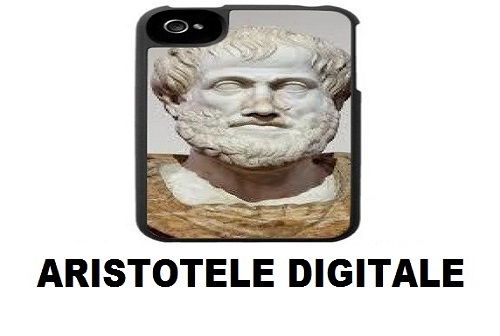I resume from the previous gleaning.The question is not whether the ancient Greeks had digital technologies or not, but whether they could think in a digital form, that is, whether they were more familiar with evidence of the discrete, the singular, rather than the determination of the continuum.
Homer’s talks about geo-referenced Phaeacian ships which were-driven by something like artificial intelligence. Obviously, this does not prove that they had IT technologies, nor that Homer was the inventor of science fiction. It shows that they able to think digitally somehow, you could say that they could be smart.
They did not favor the preventive calculation, which pretends not only to say how the facts really went (this is the task we have given to history) but also to affirm how the facts must necessarily go (this is the task we have attributed to science). Homer’s men favored the kairetic attitude, through this asset the commander of the ship, the kibernetes, is not the one who already knows what you need to know to be the captain of a ship, but he is the one who knows how to interact with the unexpected, and how to take the right opportunity, case by case. In short, Ulysses. This is kairos. This is being smart. Alcinoo was smart in the way of thinking rather than in the technology availability. Homer knew this well, since he gave the name of Alcinoo to the king of the Phaeacians. Alcinoo is composed of elk (strength, power) and nous (mind, thought, spirit), man of strong thinking, because being smart is a matter of the mind.
Moreover, the logical, phenomenological, experiential, factual and social place in which we have done everything to at least preserve the memory of the kairos is right art, which is not by chance the sister-enemy of science. And since the existence of two truths, the one of art and the one of science, is inadmissible for us, we have invented a distinction believing to resolve the contradiction between the ideographic, non-forecasting sciences and natural sciences, which are nomothetic, that is, capable to find universal laws valid in every time and in every place. Thus, the two truths are stable. If the truths are two, they can also be many more. Consequently, the Whole becomes the Nothing. We are immersed, some would say, inevitably in nihilism.
The digital dimension, however, acts simultaneously in and by difference and also in and for identity. By its very nature, the digital is kairetic. It does not return there, but it is kairetic, it favors the discrete, the singular, and also knows how to calculate the continuum. Everything can be art and science at the same time. On the other hand, Hegel said that art would die, or rather that it would find its fulfillment in the realization of the spirit, that is, of thought. And it was his pupil Marx who stated in his “Manifesto” that in full communism everyone would have written poetry and painted pictures. One day one of my undergraduate students tells me: “Professor, I finally understood that digital is the implementation of communism”. He was wrong, of course, but there was something to keep in mind.








